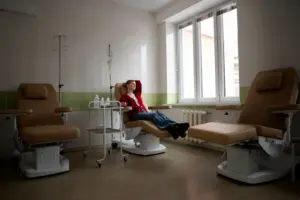
Low Testosterone Causes: It’s not something most men talk about openly, but low testosterone is more common than you might think. And it’s not just about energy levels or mood. Low testosterone levels can affect your overall health and quality of life in ways you may not have realised.
If you’ve been feeling tired, unmotivated, or not like yourself, it may not be “just in your head.” Your body could be signalling a hormonal imbalance, and your testosterone levels might be the reason.
Also Read | 5 common men’s health issues you should never ignore
What is testosterone?
Testosterone is often linked to sex drive, but its role goes far beyond that. It plays a very important role in building muscles, shaping your voice, producing sperm, regulating sex drives, maintaining energy, and helping with body hair and growth. While women also produce testosterone, men naturally have higher levels. When the testosterone levels go too low, it can lead to a condition called hypogonadism.
How do you know if your testosterone is low?
When testosterone levels drop, your body usually gives you clues, but they can be easy to miss at first. The symptoms often build gradually, which is why many men don’t realise what’s happening right away.
Common symptoms of low testosterone include low sex drive, erectile dysfunction, fatigue or low energy, mood changes like feeling depressed, reduced muscle mass or strength, increased body fat, and less facial or body hair. Not every man will experience all of these symptoms, and some may have unusual ones. But if you don’t feel like yourself for several weeks, it’s worth talking to the doctor.
What causes low testosterone?
As you start ageing, testosterone levels can be much lower than in your younger years.
High blood pressure, type 2 diabetes, sleep apnoea, testicle injuries, and hormonal disorders can also cause low testosterone levels. Low levels can be linked to too much stress, poor sleep habits, unhealthy eating, a lack of exercise, and heavy drinking or drug use. Certain medications, like steroids or chemotherapy drugs, might also interfere with testosterone levels.

How is low testosterone diagnosed?
The only way to know for sure if you have low testosterone is through a blood test. If you’re experiencing symptoms, your doctor will typically check your hormone levels in the morning, when testosterone is usually at its peak. Normal levels in men generally range from 300 to 1000 ng/dL.
Also Read | Sperm vs. Semen: What’s the difference?
Low testosterone can feel like an uncomfortable or sensitive topic, but it’s far more common and complex than most people realise. It’s not just about libido; it’s about your overall well-being. If something feels off, don’t brush it aside. Talk to your doctor.








